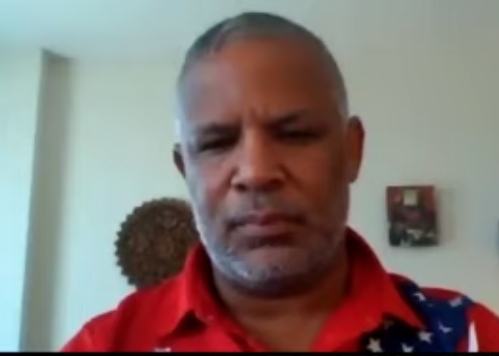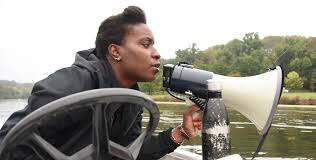It’s not easy being an African American rower. That was made clear by a June 19 online panel sponsored by Rowing in Color, which included rowers, coaches and other Black leaders in the sport of crew from around the country.
Most said that they struggle with the uncomfortable spotlight in which they find themselves in a historically white sport.
“Being part of a sport and feeling that you belong are two different things,” said Malcolm Doldron, women’s lightweight crew coach at Boston University. When people walk into a boathouse, “Do they see people who look like them? Coaches? Members? People on boards?”
It isn’t that Black athletes are new to rowing. Anita DeFranz, who trained at the Vesper Boat Club in Philadelphia, was in the bronze-medal-winning eight in 1976, the first time women’s rowing was an Olympic sport, and went on to spend most of her career on the board of the International Olympic Committee. John Izzard has been a member of the Undine Barge Club since 1974, the first Black rower to join the club. His wife, Parthenia, also African American, joined Philadelphia Girls Rowing Club in 1986.
Nonetheless, as in so many other areas of life, Black rowers say their presence in the sport is sometimes questioned.
Patrick Johnson, a 51-year-old military veteran who has played a major leadership role in Athletes Without Limits, told a story to explain how he feels. In the military, he said, he had a friend who came from a poor white background who became an officer. “With rank, he is looked at as having made it,” Johnson said. However, when people looked at Johnson in uniform, who held the same rank as his poor, white friend, “they still see me as black.”

Johnson talked about himself and other black coaches being stopped on the dock at major national and international races to be asked who they were, as if they didn’t belong. “We have to keep each other strong when we are feeling beat up,” he said. (Days after the panel, following an insult thrown at Johnson, he was invited to respond.)
Young black rowers say they have encountered unsolicited criticism about their rowing, and worse.
“[My] kids talk about the looks they get, like are you going to take something?” said Craig White, head coach at St. Benedict’s Prep Academy in Newark, N.J. “It’s persistent and unwavering and it comes back to me every single time as a high school coach. I don’t want to have these conversations with other coaches at every regatta and with the kids afterward” to calm them down, “instead of talking about their strokes and form.”
Several of the panelists talked about their determination to part the waters for young black athletes following in their wake.
“I try to remind myself that it’s a privilege to do this work,” said Catherine Reddick, a two-time medalist at the Pan American Games and founder of Philadelphia City Rowing, a non-profit that brings city youth to the river. “We may not want this all on our shoulders to do the fixing, but we want to make strides forward.”
Kadee Sylla, in the class of 2020 at the University of San Diego who rowed on the US national team, said she feels like her picture is being used to showcase diversity in rowing but that there is “no sort of thought to do something to make the sport more diverse.”

And Brannon Johnson, CEO of the Philadelphia community rowing group, BLJ Rowing, said she’s “exhausted” by the onslaught of phone calls she’s getting now, speaking on behalf of black people. “They’re getting woke,” she said of the public. “But what are we doing to change things?”
You can watch a video of the panel here.
In Philadelphia, the recently established “Schuylkill River District Community Access Advisory Board,” which has a $50,000 grant from the William Penn Foundation, is working with neighborhoods closest to the river to develop “recommendations designed to enhance diversity, equity and inclusion in programs, activities, and usage” of the river and adjacent parkland, its mission statement says.
Meanwhile, as growing numbers of young Black rowers nationally are getting into the sport through community rowing programs and as college walk-ons, the big question is retention. What can make a difference is the support of their coach.

Asiya Mahmud, assistant coach for Drexel University women’s rowing, began rowing in high school and continued at Drexel. “I was the “only woman of color on my team, but I had coaches who really saw me and valued me,” she said.
That message also comes through in Arshay Cooper’s memoir Suga Water, now being re-released with the title A Most Beautiful Thing. It’s about the first black high school crew, which was in the late 1990s in Chicago. Cooper (about whom I wrote in a recent blog) got a shout-out from last week’s panel but is busy with a movie of the same name, slated to open in AMC theaters nationally in July.
Cooper credits Ken Alpart, a former Penn rower who funded and mentored Cooper’s rowing team, along with his coaches for catapulting him into a successful future. As Cooper writes in his book, this is the kind of encouragement he got:
” ‘You’re stronger than any kid I’ve seen on the erg machine. Remember you have a right to be here and a right to win. I have high hopes for you, Arshay.’ That is all I need to hear, and I am ready. The power of speaking the right words to a young person can do something magical. You feel unstoppable.”